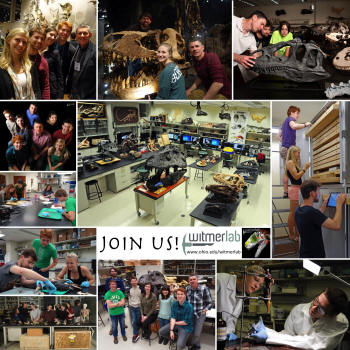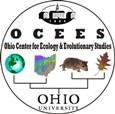- News & information
- About
- History
- George V. Voinovich
- George V. Voinovich Collection
- Calendar
- How to Find Us
- News
- Archives
- Photojournalism Fellowship Project
- Photo Essays
- Current Fellow
- Previous Fellows
- Reports and Publications
- Archives
- Students
- Prospective
- Center for Entrepreneurship
- Environmental Studies
- HTC/Voinovich School Scholars
- Master of Public Administration
- Current
- HTC/Voinovich School Scholars
- Center for Entrepreneurship
- Environmental Studies
- Master of Public Administration
- Alumni
- Contact
- School Leadership
- Strategic Partners Alliance
- Ohio University Public Affairs Advisory Committee
- Ohio University Public Affairs Advisory Committee
- Faculty and Fellows
- Faculty
- Visiting Professors
- Voinovich Fellows
- Professional Staff
| Lawrence M. Witmer,
PhD
|
|
|
Joining the Lab: Prospective Students |
 |
Students and their research are what keeps WitmerLab moving forward and on the cutting edge. There are many research opportunities for students at all levels.

Graduate students: We welcome applications for students interested in pursuing a doctoral (PhD) degree.Students are admitted to the Program in Ecology and Evolutionary Biology (EEB) , and are automatically affiliated with the Ohio Center for Ecology and Evolutionary Studies (OCEES) . WitmerLab offers a diverse range of possible research topics in both the modern and fossil realms (hence our "pick-and-scalpel" logo). Although we may be best known for our research on dinosaurs and other fossil archosaurs, we've published many articles on extant archosaurs and even several article on mammals. The point is that we're very open to diverse topics. That said, it's generally a good idea for student research projects to draw on existing resources and techniques simply so that we can best serve those projects. We have excellent space in a research building that opened in 2002. I was fortunate to be able to design all of our research spaces to suit our needs. We're well equipped both in terms of the low-tech anatomical side of our research (e.g., a walk-in freezer bursting with interesting carcasses, everything from scalpels to band- and chain-saws to take the carcasses apart) and the high-tech side (e.g., numerous fully loaded computer visualization workstations). Our CT scanning capabilities are excellent in that we have a great relationship with our local hospital as well as a dedicated microCT scanner ( OUµCT ). We have an enormous stockpile of CT datasets, most of which are available for student projects (some have strings tied to external collaborators). We're very proud of the high level of student research in our lab, as well as our excellent placement record of finished students accepting great postdocs, faculty positions, or doctoral slots elsewhere. All of our past PhD students are currently fully employed in academic faculty positions! We are indeed a biology program. We strongly emphasize the biological aspects of paleontology, and we generally ask biological questions about extinct animals. That said, Ohio University has great soft-rock geology, invertebrate paleontology, and paleobotany, and so we've got the bases covered there, as well. Grad students in the Witmer Lab are generally required to take the full medical anatomical sciences curriculum in the medical school. Human gross anatomy provides critical high-level anatomical training, turning our students into very sophisticated "complete" anatomists, which serves them very well as paleontologists and comparative anatomists. Teaching assistant positions are within the anatomical sciences courses in our medical school. I posted on our Pick-and-Scalpel blog about how medical gross anatomy relates to our research lab . The full requirements of the program can be seen on the EEB web site linked above. Graduate student slots in the lab are generally highly competitive, particularly if prospective students are seeking full funding.
Undergraduate students: Ohio University undergraduates of course get priority access to research in our lab, but students at other universities are welcome to enquire about opportunities. Undergrads should read the grad student section above to find out about the general focus and direction of the lab. Although we've had numerous wonderful undergrads in the OU Honors Tutorial College , other undergrads are also very welcome. Undergrads can sign up for research credit, as well as do senior research projects. Volunteering is also a possibility.
Area public school students: Select students from area public schools are also welcome to enquire about research opportunities.
Check us out...we're worth a look! --Larry Witmer
Contact Information:
(740) 593–9381 | Building 21, The Ridges
Ohio University Contact Information:
Ohio University | Athens OH 45701 | 740.593.1000 ADA Compliance | © 2018 Ohio University . All rights reserved.























